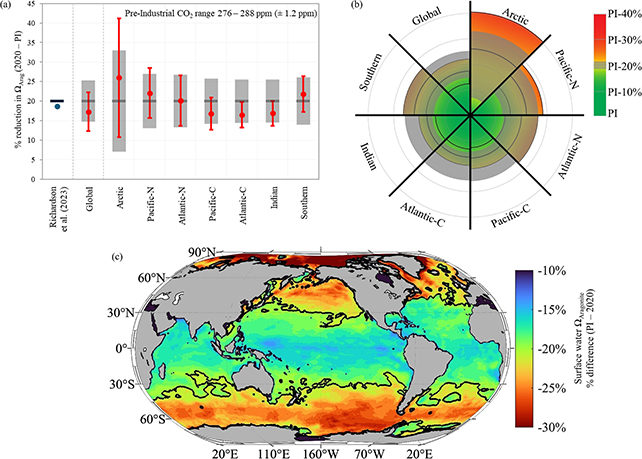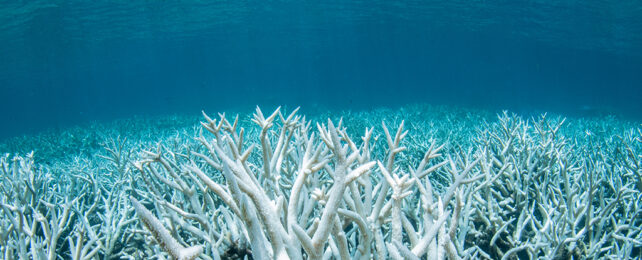Ocean acidity is one of the key markers of Earth's health, because if it tips too far towards acidic then the results can be catastrophic – and a new study suggests the world's waters are now entering this danger zone.
A team of scientists from the US and UK looked at what's known as the planetary boundary for ocean acidification, defined as a 20 percent drop in average surface aragonite saturation – that's the calcium carbonate material that many marine organisms use for shells and skeletons.
Combining computer models with the latest field measurements, the researchers found that globally, the oceans were either very close to or beyond the boundary. Around 60 percent of deeper waters have gone beyond it, and 40 percent of surface waters.
Given the damage already recorded, the team suggests the boundary should actually be set at a 10 percent drop in aragonite saturation – a level the ocean as a whole went past at the turn of the millennium.
"Looking across different areas of the world, the polar regions show the biggest changes in ocean acidification at the surface," says biological oceanographer Helen Findlay from Plymouth Marine Laboratory (PML) in the UK.
"Meanwhile, in deeper waters, the largest changes are happening in areas just outside the poles and in the upwelling regions along the west coast of North America and near the equator."

While ocean acidification is not something you'll immediately notice as you gaze out across the sea from the shoreline, it has a profound effect. It damages coral reefs, makes waters inhospitable for shell-building creatures, and kills off or weakens other marine life. That then has a knock-on effect on the rest of the ecosystem.
This acidification happens when carbon dioxide is absorbed by the ocean and reacts with water, and so the more greenhouse gases saturate the atmosphere, the more acidic the world's waters are going to become.
"Most ocean life doesn't just live at the surface – the waters below are home to many more different types of plants and animals," says Findlay. "Since these deeper waters are changing so much, the impacts of ocean acidification could be far worse than we thought.
"This has huge implications for important underwater ecosystems like tropical and even deep-sea coral reefs that provide essential habitats and nursing refuge for many species."
Scientists have agreed on eight other planetary boundaries besides ocean acidification, and we've already crossed six of them. Ocean acidification would be the seventh, and shows the dire straits that Earth is now in.
The researchers behind this latest study want to see a rapid response to the dangers, with targeted action taken in the areas most vulnerable to acidification – as well as protective measures for those areas that haven't been as badly affected so far.
"Ocean acidification isn't just an environmental crisis – it's a ticking time bomb for marine ecosystems and coastal economies," says Steve Widdicombe from PML, who wasn't directly involved in the study.
"From the coral reefs that support tourism to the shellfish industries that sustain coastal communities, we're gambling with both biodiversity and billions in economic value every day that action is delayed."
The research has been published in Global Change Biology.
